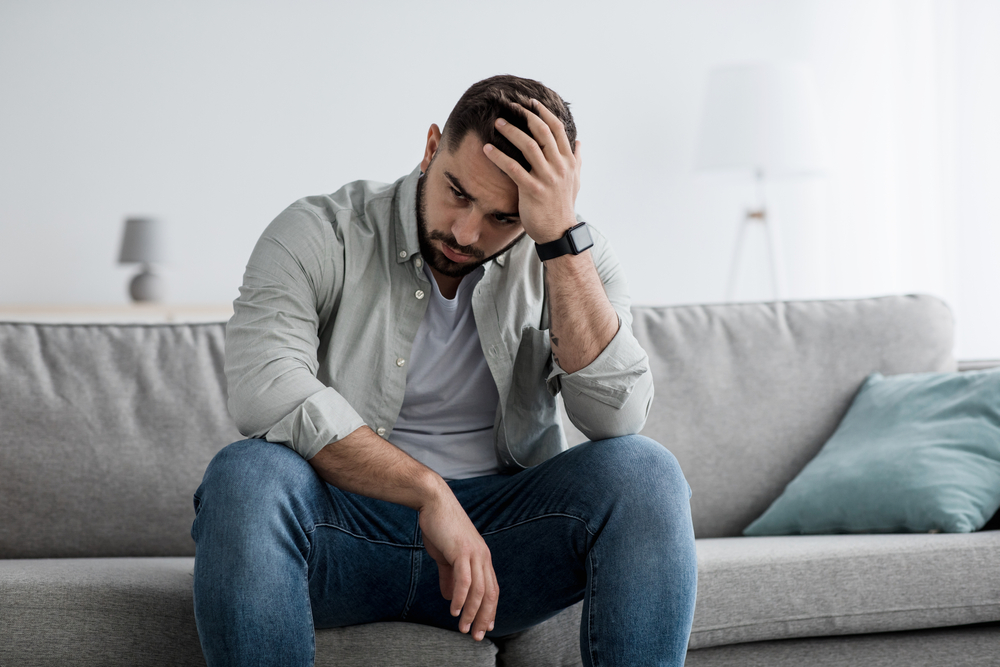Can Bulimia Cause Kidney Damage?
Bulimia nervosa is an eating disorder in which people find themselves in a harmful cycle of binge eating sessions followed by purging sessions. During a typical binge eating session, a person will lose control as they eat a significant amount of food over a relatively short time period. A purge session involves attempts to “cancel out” the effects of the previous eating binge; oftentimes, people will purge by forcing themselves to throw up or abusing tools such as enemas, laxatives, or diuretics.
Bulimia and Your Kidneys
The kidneys are some of the many organs that can be negatively affected by bulimia. This is because every type of purging behavior can potentially cause dehydration. Dehydration, or the inability or failure to get enough water into the body, can be harmful for everyone over time. In simple terms, when you don’t ingest enough water into your body, your it’s not unlike a plant that isn’t properly watered over time.
Water, and nutrients, bring electrolytes to your cells that keep them functioning properly. When you deprive your body of the nutrients it needs to survive, various “survival mechanisms” kick in that can be quite harmful to your body and impact your overall life.
Serious bulimia that has been ongoing can lead to major medical complications including:
- Impaired kidney function
- Acute kidney injury
- Chronic kidney disease
- Irreversible kidney disease
- And even end-stage renal disease
All of these challenges come about overtime, and there are signs you, or your loved one, is dancing dangerously with such potential life threatening issues. That said, for most people with bulimia or anorexia, the path to something as serious as renal failure happens over time.
The good news is that you can spot some of the side-effects of bulimia quickly. And while, the mental health challenges underneath bulimia need to be addressed for healing and recovery, it’s critical to address the medical complications arising from the disordered eating behavior right away so you prevent the snowball effect that comes when the body is deprived of water and nutrients for too long and begins to shut down overtime.

So let’s start at the beginning.
When someone is restricting their calorie intake and/or binging and purging, as you see traditionally with bulimia, there are a handful of physical side effects that start to show up. The most common is dehydration.
According to the Mayo Clinic, “dehydration occurs when you use or lose more fluid than you take in, and your body doesn’t have enough water and other fluids to carry out its normal functions. If you don’t replace lost fluids, you will get dehydrated.”
If your dehydration becomes serious, it can lead to many unpleasant affects including:
- Extreme thirst and dry mouth
- Reduction in urine output (AKA you pee significantly less often)
- When you do urinate, the color is dark
- Your brain can feel confused, foggy, or unfocused
- Your balance feels off and you may fall or trip more or
- You many have a harder time walking distances or exercising
- And in extreme cases you may lose consciousness
All of these side effects show up long before you see chronic kidney disease or permanent kidney damage. And, as a parent, loved one or even if this is happening to you, these symptoms are the signs you want to pay attention to before longer-term damage is done.
How Does Bulimia Affect Your Kidneys
When you deprive your body of the electrolytes and nutrients it needs to function, there is always a side effect. In the early stages of an eating disorder, these experiences of food deprivation or purging may produce positive mental results that cause you to feel excited and in-control of your body. But there is a silent tipping point that takes a desire to control your weight to a very dark place.
Your kidneys are the waste management and one of the critical filtration systems in your body. When they are deprived of the right balance of fluids and nutrients necessary to thrive, they work less efficiently. Think of it like running your car without getting a proper oil change. Overtime, the oil that is used to lubricate parts of your engine stops working, your kidneys handle similar functions in your body.
You can read a complete overview of how your kidney’s work here.
Can Bulimia Cause Kidney Failure or Renal Failure?
In long-term, untreated cases of bulimia, unfortunately the answer is yes. In simple terms, depriving your body of the nutrients it needs by either withholding food as happens with anorexia or by consuming large amounts of food but then purging it by either vomiting, using laxatives or other methods sets off a set of responses in the body that over time can become irreversible.
If you’re worried about kidney failure, this is a sign to contact someone for help right away. You can reach out to our team, or if you’re truly concerned, call 911 and visit the emergency room. Renal failure and kidney failure can be life threatening and is not something to take lightly.
That said, for most people, bulimia is noticeable before it is in this critical stage, but even dancing with bulimia as a “weight” management technique can be dangerous. What we work on in therapy with clients who have bulimia is addressing the psychological underbelly of why bulimia is the choice to take to deal with various mental health issues, ranging from self-esteem issues to depression, anxiety, body image distortions and more.

The mental health connection between anorexia and bulimia is a critical element in the healing process and that’s why we have teletherapy options for clients so they can stay connected to their healing team while they address the practical concerns of eating in a world where they feel distressed about food and their body all the time.
If you’re worried that you or a loved one are starting to show negative signs from their disordered eating, here is a list of signs to look for.
Other Physical Symptoms of Bulimia Nervosa To Watch For Include:
- Stomach cramps
- Other non-specific gastrointestinal issues such as acid reflux or constipation
- Bloating from fluid retention
- Dry skin
- Yellow skin from eating lots of carrots
- Thinning of hair on the head
- Difficulty concentrating
- Abnormal laboratory and blood work findings, such as low hormone levels, anemia, slow heart rate, low blood cell counts, low potassium
- Noticeable weight fluctuations
- Impaired immune system functioning
- Cuts and/or calluses across the tops of finger joints from induced vomiting
- Sleep issues
- Poor healing of wounds
- Menstrual irregularities
- Dry, brittle nails
- Dental issues, such as enamel erosion, tooth sensitivity, cavities, and discoloration
- Constantly feeling cold
- Dizziness
- Muscle weakness
- Cold, mottled hands and feet
- Swollen feet
- Swelling around the salivary glands
- Lanugo, or fine hair all over the body
And because eating disorders are a two-sided coin, along with the physical signs to watch for, there are also mental health signs to look for as well. Here is a list of behaviors our clients have shared with us that lead to seeking help for their bulimia or other eating disorder.
Emotional Signs and Behaviors Associated with Bulimia Nervosa
Sometimes it’s not easy to witness or see a person’s physical manifestations of their eating disorder. Many people feel deep shame about their bulimia and hide their binging and purging from the people they love.
If you suspect that your loved one has bulimia, here is a list of secondary signals that you may be dealing with bulimia or other disordered eating challenge.
- Evidence of binge eating, such as the presence of many empty containers and wrappers or the disappearance of large amounts of food during a short period of time
- Evidence of purging, such as the presence of laxatives and diuretics wrappers and packages, signs and/or smells of throwing up, and frequently using the bathroom after eating
- Withdrawing from usual activities
- New food practices or fad dieting
- Frequently looking in the mirror for perceived appearance flaws
- Creating a schedule to allow time to binge eat and purge
- Frequent dieting
- Using excessive amounts of mints, gum, and/or mouthwash
- Food rituals, such as excessive chewing, not allowing foods to touch, and only eating a type of food or food group
- Social withdrawal
- Discomfort eating in front of others
- Skipping meals
- Taking small portions during meals
- Major mood swings
- Hoarding food in odd places
- Maintaining an excessive, inflexible exercise routine
- Behaviors and attitudes that suggest dieting, weight loss, and food control are a major concern
- Drinking water or non-caloric beverages in excess
- Hiding the body by wearing baggy clothing
- Stealing food
- Having secret, recurrent binge eating episodes
- Displaying major concern with one’s shape and body weight
The challenge with eating disorders, like most addictions, is that no one ever really means for things to go down this dark path. The desire starts off with a simple wish to control your food intake, but when it is a true mental health problem, it’s often coupled with issues that cloud a person’s behavior. And that is part of why healing eating disorders is so challenging.
That said, there is hope. Bulimia is a specialty of ours and we have helped hundreds of clients find their way through the darkness and back into the light.
Getting Help
So while bulimia nervosa can cause serious damage to the body if it’s not treated, there is a path to recovery for both the physical behaviors and the mental health challenges that often lie underneath it. If you are looking for support, we can help you or your loved one figure out the best next steps to take. Contact us by phone (866-525-2766) or through this contact form to get support right away.
And if you’re worried you or your loved one are in imminent danger, don’t hesitate to go to the nearest emergency room or call 911 for help.
Updated 1/19/24



